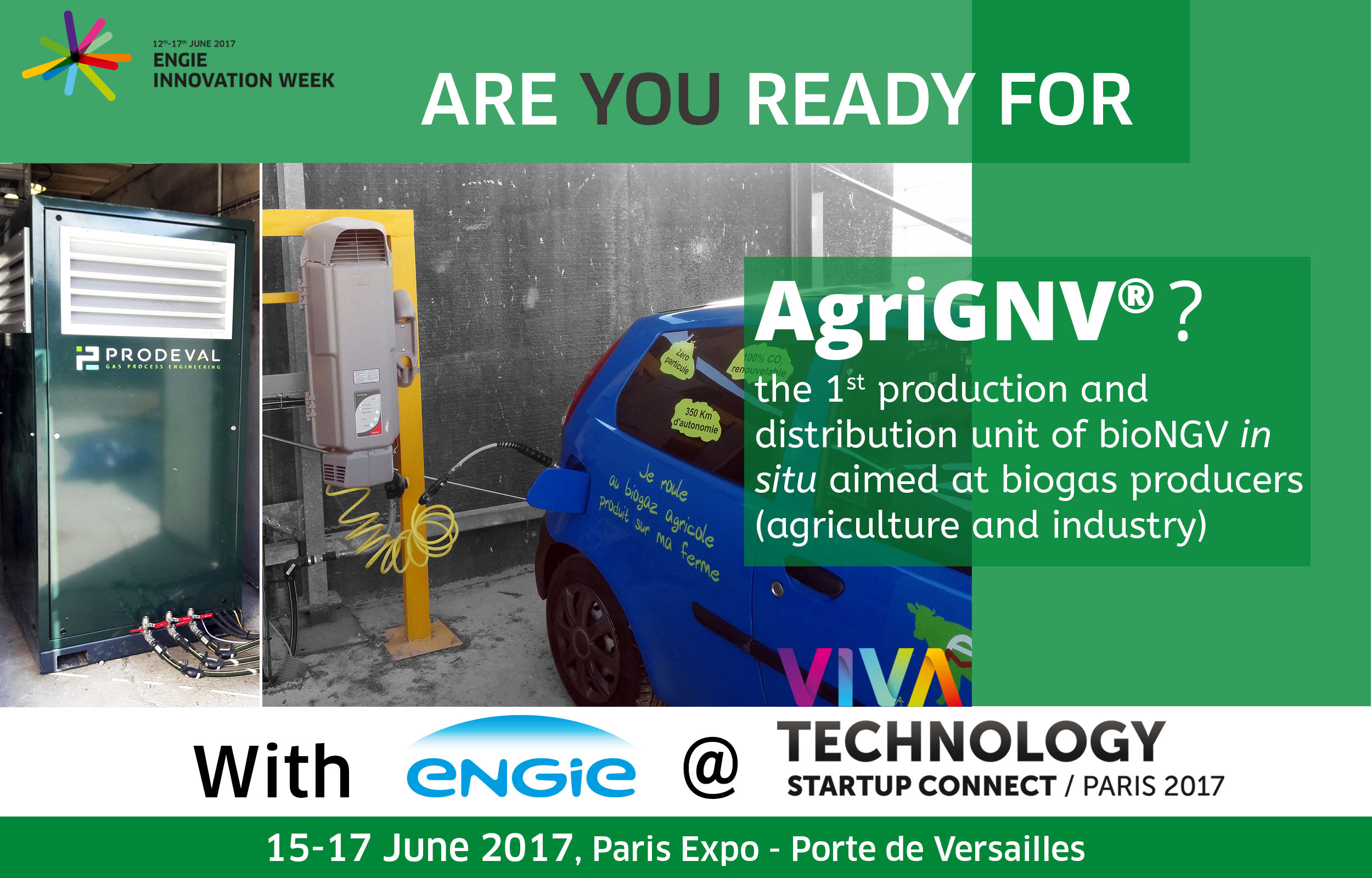Hello Yann, can you give us a short introduction to your company?
Prodeval is a growing French SME (40 people, €8 million in sales) that has been specialized since 1990 in innovation and engineering for
processing and creating value from biogas (biomethane, bioGNV, etc.) We work with the agricultural, industrial and
water treatment and
waste recovery sectors. Prodeval works closely with its customers to meet the high standards of the energy transition. We are densely enmeshed in a network of local, specialized partners, and we design and manufacture our technologies in the Drôme while making sure we participate in the local economic fabric.
How is your project innovative?
We innovate in several areas:
-
Market impact Although
the market for NGV and bioGNV is booming in Europe, it is still relatively marginal in France, where fewer than 15,000 vehicles are in circulation, mainly buses, heavy trucks and utility vehicles. However, according to the Factor 4 scenario, the share of natural gas-powered vehicles i
s expected to increase to 42% by 2050.
In this context, developing in the bioGNV sector will require not only vehicles and a distribution network, but also
tools for producing bioGNV from biogas. AgriGNV® allows our customers to
recover and use surplus biogas. It can be installed quickly and easily. As such it could be a critical link in the biogas system in France (where there are 400 methanizers) as well as in Italy, where Prodeval also works. AgriGNV® could also become an important tool for
improving the image of the bioGNV sector. Several projects are currently under consideration that could help shape legislation in the sector’s favor, particularly regarding the sale of bioGNV.
- Comfort and ease of use: The unit is compact and operates in an ON/OFF mode. The solution’s scalability makes it possible to
adapt fuel production based on actual needs, and therefore to increase production with the vehicle fleet. Filling the vehicle can initially be carried out slowly and then sped up as the number of vehicles increases (by storing bioGNV, for example).
- The energy transition: Burning fossil fuels generates
fine particulate matter that, in the long term, can cause cardiovascular disease, asthma or respiratory development problems in children. The World Health Organization (WHO) estimates that the number of premature deaths due to urban air pollution in the world was 1.3 million in 2010. With these major public health concerns in mind, v
ehicles that run on CNG and bioGNV have an indisputable advantage: they
emit little nitrogen oxide, little carbon monoxide, and no black fumes – unlike diesel and gasoline. Integrating NGV and bioGNV into the transport energy mix is a quick solution for reducing particulate pollution in the city and for transporting goods.
In terms of greenhouse gas (GHG) emissions,
bioGNV is the best-in-class fuel, and it performs better in terms of emissions reductions than electricity or biofuels. (Source: ATEE Club Biogaz).
AgriGNV® allows you to replace fossil energy with bioGNV produced from locally-recovered waste.
For this model of a circular green economy to be economically viable, the investment and operations costs for bioGNV production need to be low. AgriGNV® costs around €80,000; Including odorisation, the distribution and filling station of bioGNV. PRODEVAL is working to reduce the cost of the solution.
- The benefits of this solution include: - Cost savings for bioGNV vehicle users (no more petrol purchases, independence from oil price inflation, maintenance of smaller vehicles, etc.). Profitability is estimated at 4-10 years – with no subsidy – depending on fuel use and costs.
- Developing the bioGNV sector, with the potential for a country-wide network. One of the obstacles to developing bioGNV is indeed that the infrastructure mesh is currently too weak.
- Participating in the fight against air pollution and global warming. AgriGNV® gives farmers the possibility of reducing their fossil fuel consumption. Rolling this technology out will also help develop bioGNV in France as a whole by raising awareness of its potential.
What are you going to show at Vivatech?
Videos about AgriGNV®, the first in situ bioGNV production and distribution unit for the agricultural and industrial sector! We will present AgriGNV®‘s technical features and innovative aspects, narrated in part by Philippe Collin - the first farmer to use AgriGNV®.
What do you expect to get from participating in Vivatech with ENGIE?
We hope to share our green mobility solution to a wider audience than usual (typically those we meet at specialized trade shows, etc.) and also to meet ENGIE partners to see how we can work together.
